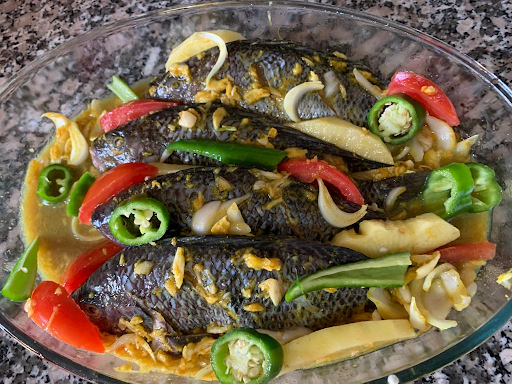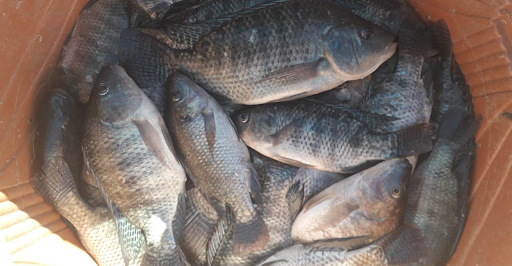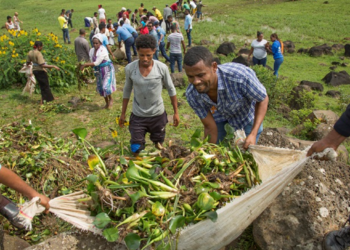Pioneer in Sustainable Aquaculture Uses Social Media to Break Barriers
Sustainable Aquafarmer Kaouther Rojbani is the first woman from Southern Tunisia to practice aquaculture activities in the Sahara Desert.
Aquafarmer Kaouther Rojbani is going against the grain, not only by being the first woman from Southern Tunisia to practice aquaculture activities in the Sahara Desert, but also in making the decision to cultivate tilapia, a freshwater fish, instead of seabass or sea bream.
“Why did I choose the tilapia fish especially? First thing: I already have an agriculture farm so I haven’t any problem with freshwater resources. Secondly, I like to integrate agriculture with aquaculture, for that reason I choose freshwater fish like tilapia and carp. And the most important thing, it’s a challenge for me, because I’m the first woman from Southern Tunisia who practiced aquaculture activities in the Sahara.”
Rojbani integrates her aquaculture by passing the ammonia-rich water from her fish tanks through a sedimentation tank and then through a channel to irrigate her crops. In this way, she is able to avoid synthetic fertilizers and maintain an organic production of fruit and vegetables on her family farm. She learned about this technique during her studies and internships at the Higher Institute of Fish and Aquaculture of Bizerte.
Transformation from Student to Entrepreneur
Rojbani credits her internships at hatcheries and aquaculture farms–as well as her passion for agriculture and aquaculture as a child–for how she was prepared to make the transition directly from student to entrepreneur, saying that the intense hours gave her the expertise she needed.
Once she began her business, entering into a market that had no knowledge of the value of her species of fish wasn’t easy. In order to get a foothold, she hosted tastings, took time to explain how to prepare tilapia properly, and temporarily lowered her prices. It ended up paying off, however, when she was able to break through the local market, where most aquaculture production in Tunisia is sold, and begin exporting her production to Qatar, leading to many more opportunities to sell her fish for catering services and hotels.

Through adept use of social media, specifically her Facebook group AquSud, Rojbani leveraged her situation and was able to transform her remote location in the Sahara Desert, far away from any tourist centers or the dammed areas in the north and center of the country where freshwater fish are mainly cultivated, into her greatest strength. “It’s a new thing in my country that there are fish in the Sahara, so it’s the best way of marketing for me–so here everybody is coming to see the fish in the Sahara.” Accomplishing this not only helped her business, but helped to normalize an industry which in Tunisia has low social acceptability.

Wake Up and Smell the Fish
For Rojbani, this is just the beginning. Going forward, she hopes to hire women in her community to help break the poverty cycle. In general, research suggests that employment generated by commercially orientated, family farms is likely to generate the greatest overall opportunities for rural communities to escape poverty. To take her business to the next step, however, she must overcome one last barrier, “in Tunisia, the laws are difficult to give money because these types of projects are new, and not valued. They are afraid of the results” Even on a microfinance level, banks have difficulty understanding her business plans, as new as the aquaculture industry is and as accustomed as the local sector is to marine fish instead of freshwater tilapia.
In spite of this challenge, Rojbani sees nothing but hope going forward, “aquaculture sector is the future, it’s a noble activity because it allows poor people to buy fish with acceptable prices compared with wild fish. With pollution in the sea, farm fish are more controllable. The cultivated fish exist all the year and you can harvest them without violating the marine fishing law and the biological period of the fish. If you believe in this sector and love it you can do the best thing, and you can also overcome all the issues, just believe in it and yourself.”
Pioneer in Sustainable Aquaculture Uses Social Media to Break Barriers









